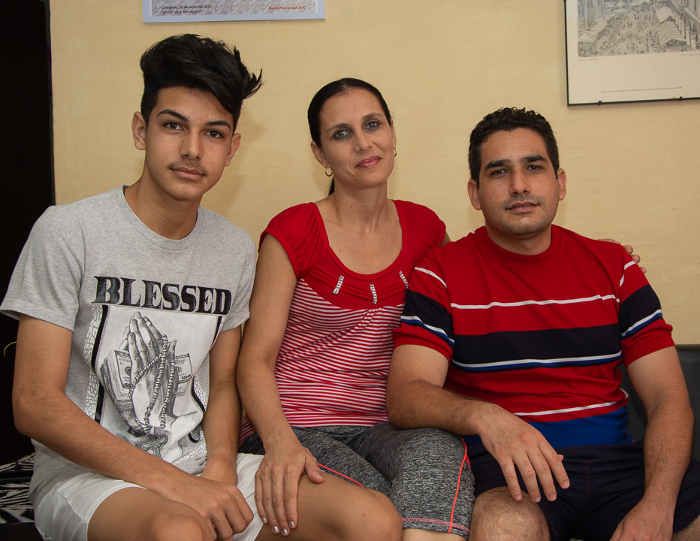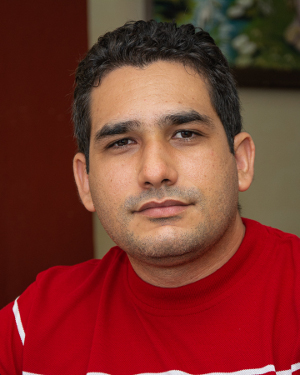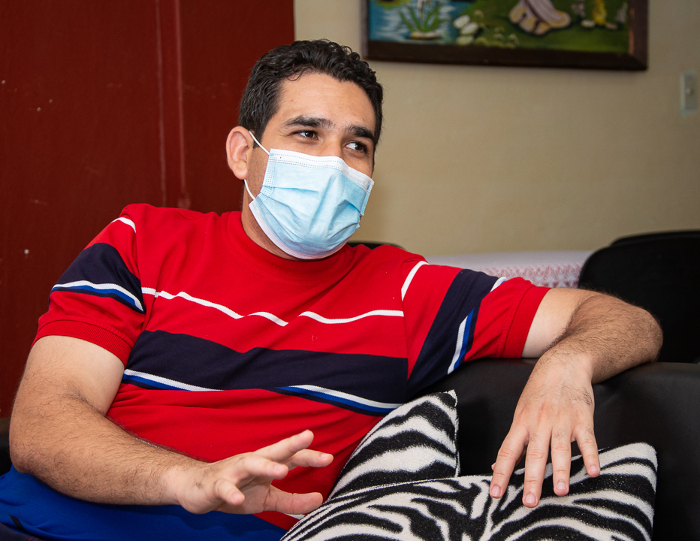CAMAGÜEY.- In Crema, the Italian region of Lombardy 8,128 kilometers away, little was said about Cuba when Yosmani arrived. For those there, this was simply a place with good beaches and peculiar people. In two and a half months their way of seeing us changed.
Cuba brought 5 526 medical services, 3 668 nursing procedures and 210 discharge clinics. They were achieved by the Henry Reeve brigade in the European country from March 22 to June 8.
Yosmani Pupo Barrio, an Internal Medicine specialist at the military hospital Doctor Octavio de la Concepción y la Pedraja, worked hard to heal the Italians. This doctor still does not believe his extraordinary work, he just did, he clarifies, what he has been taught here: to do his best to save lives.
The news of his departure took him by surprise. “At home we had already gotten the idea of planned rotations every 14 days, but we never thought that my first international experience would happen so soon. In a single day I prepared my departure, there was no time to go to Las Tunas to say goodbye to my dad and my brothers. My nerves were on edge, but I knew I would do well. "

His wife Yanexis Nápoles Nápoles was sure of that, despite the fear that such a decision brings, gave him the confidence and impulse he needed. “He is an excellent doctor, and a better human being. It would not be him if he refused to help others and less in the current situation. We saw it as a family sacrifice of a short time that would bring good to thousands of people. We didn't hesitate. ”
After a four-day stay at the Central Medical Cooperation Unit in Havana and biosafety training, virus updates, and international scientific publications, the brigade of 52 doctors and nurses left for Lombardy.
“When we arrived we were divided into two groups for accommodation, both in good condition. They explained what the collection times would be for the transfer to the medical centers and they gave us some coats donated by the Italians to protect us from the temperatures below zero at those times.
“The next day we toured the hospital and understood how complex the situation was. To give an example, in normal times the emergency rooms have about 15 beds for observations; with the pandemic, in addition, 84 patients were lying on stretchers and located on both sides of the corridor.
“In the intensive care unit, everyone admitted was ventilated. There was a high percentage of elderly people over 80 years old and many of them were doctors from the same hospital, infected in their eagerness to care for positive people ”.
Yosmani explains that the retired physicians have rejoined to help, because several active people did not want to work. Imagine the hospital situation when they accepted, knowing the risks, that the inactive returned to their posts. That is why nobody could believe that from Cuba we had gone to control the disease. So they respected us more. ”
In addition to the weather, the language barrier made things a bit difficult for them at first. The 31-year-old says that sometimes they wanted to contribute elements in the conversations and did not know how. But as they say out there, "the Cuban slips through the hole of a needle."
“First we tested with English, then, through applications and digital translators, we began to study Italian and in 15 days we mastered the basics to understand the staff and ask patients routine questions. If in free time we could learn, why not to do it ”.
The boys from the brigade began working in the different rooms around 8:00 a.m. and they left at 4:00 p.m. Despite the differences between the care systems and some decisions with which they did not agree, they never questioned the established protocols. "We went with the purpose of providing knowledge to control the SARS CoV 2 virus, not imposing our methods."
 “However, it hurt a lot when in a meeting room they debated which patients were sent to palliative care rooms without artificial ventilation or antibiotics, and which ones to therapy. We did not correspond to the decision, but in Cuba we are not used to that. I have been a graduate for seven years and here they taught us that for every patient we fight to the end. In Cuban intensive care, an old man can be ventilated in a critical state, and even then it is about saving. It has also happened to us that as doctors we know that their improvement is almost impossible but we have never withdrawn their attention.
“However, it hurt a lot when in a meeting room they debated which patients were sent to palliative care rooms without artificial ventilation or antibiotics, and which ones to therapy. We did not correspond to the decision, but in Cuba we are not used to that. I have been a graduate for seven years and here they taught us that for every patient we fight to the end. In Cuban intensive care, an old man can be ventilated in a critical state, and even then it is about saving. It has also happened to us that as doctors we know that their improvement is almost impossible but we have never withdrawn their attention.
"Newcomers to Crema, a 90-year-old woman sick with COVID-19 entered to the hospital. For days we insisted on taking her forward, but it was complicated for us. Within a month the commission met to determine what to do. We had grown so fond of granny that we stopped and explained in detail why we thought she deserved another chance.
“The commission gave us a vote of confidence. In less than a week we healed the lady and she was discharged. On the day of her departure she wept with thanks. And we cry to know her healthy. Perhaps not everyone realized it, but humanism resulted from our greatest contributions there. ”
The Italian medical staff thanks Pupo Barrio for his teachings. "We were able to be part of their work group, we were able to see them as colleagues, as people where they could lean to consult, to rest."
When the Cuban doctors' plane landed in Havana on June 8, the situation was different in Crema. Fewer than five patients remained in the two hospitals destined for the pandemic, and the city gradually returned to normal. After saying goodbye in the central Plaza del Duomo and applauding them every night from the balconies, Cuba stopped being seen there as a place with good beaches and peculiar people. Now for those in Italy, ours is the land of those brave men who crossed the ocean, moved 8 128 kilometers away from theirs, and saved them.
Translated by Linet Acuña Quilez



